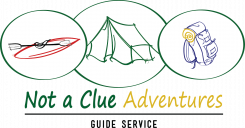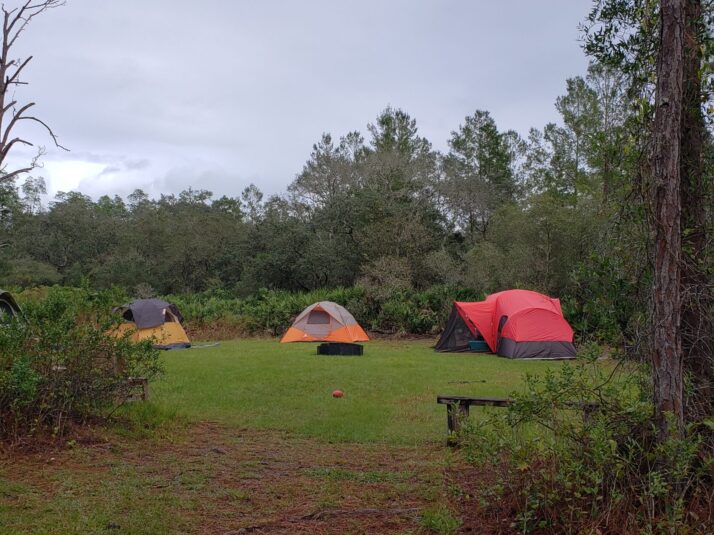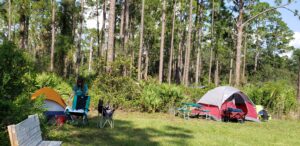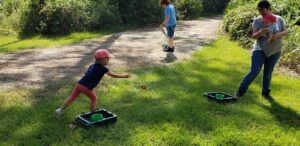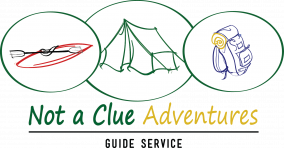Camping season is right around the corner, and it's time to start getting ready. Whether you're a seasoned camper or a first-timer, there are a few things you can do to make sure your trip is a success.
Inspect your gear.
If you have camping gear, take it out of storage and inspect it for any damage or wear and tear. Make sure all of the zippers work, the tent poles are in good condition, and the sleeping bags and pads are still comfortable. If you need to make any repairs, do so now before you head out on your trip. If you have had your tent for more than a year consider re-applying waterproof coating on the rain-fly and floor (do not waterproof your whole tent). There are spray-on waterproofing products available in most camping areas. While you are at it give your backpack a spray as well!
Make a packing list.
Once you know what gear you have, make a packing list. This will help you make sure you don't forget anything essential. Some important items to include on your list are:
- Tent, ground tarp, rainfly, stakes, poles
- Sleeping bags
- Sleeping pads
- Camp chairs
- Camp table
- Cookware
- Eating utensils
- Food and water
- Sunscreen
- Insect repellent
- Flashlights, headlamps
- First-aid kit
- Toiletries
It really helps to keep a camping tote with all the non-consumable items you regularly camp with so you know you will not be forgetting an important item when heading out from home.
Keep a kitchen tote as well and tape a list of contents on the lid. You can edit the list as you do more trips to add and remove items needed and not used to really tune it in! Try to never raid your kit for an item you need at home as you will miss it even more at camp if not replaced. Keep all your basic needs in the tote like spices, serving spoons and utensils, paper goods, backup canned goods, etc.
Choose your campsite.
If you're new to camping, it's a good idea to choose a campsite that is easily accessible and has amenities like running water, electricity and restrooms. Typically these sites are found in National, State and County Parks. You can find campsites online or at your local ranger station. A great resource we use is https://thedyrt.com/ Reviews are done by real campers like me. You can find my profile and reviews at https://thedyrt.com/member/jeanene-a/reviews For more experienced campers and those that like the backcountry experience check out the amazing sites for backpacking and camping available.
- National Parks - https://www.nps.gov/index.htm
- Florida State Parks - https://www.floridastateparks.org/
- Southwest Florida Water Management Districts - https://www.swfwmd.state.fl.us/recreation/sites (mainly primitive sites only)
- National Forest - https://www.fs.usda.gov/activity/florida/recreation/camping-cabins/
- State Forest - https://www.fdacs.gov/Forest-Wildfire/Our-Forests/State-Forests/State-Forest-Recreation/Recreational-Activities/Camping
Check the weather forecast.
Before you go camping, be sure to check the weather forecast for the area you'll be visiting. This will help you pack the appropriate clothing and gear. Remember in Florida is can rain almost at any time. Pay attention to the fronts moving through the state as it can be beautiful when you head out and then a cold front can pass over bringing rain and much colder temperatures.
Leave No Trace.
One of the most important things to remember when camping is to leave no trace. This means packing out all of your trash and leaving the campsite as you found it. To learn more about responsibly recreating please take a few minutes and visit https://lnt.org/why/#why and take a free training at https://learn.lnt.org/courses/101 A person trained in Leave No Trace is 5 times more likely to protect nature.
Here are some additional tips for preparing for camping season:
Practice setting up your tent.
Don’t purchase a new tent and take it out without a practice set up first. Home is the best place to make sure you not only can set up the tent but you can verify all the parts are there!
If you're new to camping, or if you haven't used your tent in a while, it's a good idea to practice setting it up before you go on your trip. This will help you avoid any frustration or confusion when you're at the campsite.
Pack light.
Every ounce counts when you're camping, so try to pack as light as possible. This means bringing only the essentials and leaving behind any unnecessary items. Even if you are “car-camping” you do not need to bring everything you need to be comfortable. The point of camping is to step out of the box (or house and comforts of home) for a while and experience new things.
Be prepared for anything.
Even if you've planned everything perfectly, things can happen when you're camping. That's why it's important to be prepared for anything. Pack a first-aid kit, extra food and water, and a raincoat or poncho in case of bad weather. Don’t worry if you forget something, we always have a thing or two we forget, it is part of the adventure!
Have fun!
Camping is a great way to relax and enjoy the outdoors. So don't forget to have fun! Don’t take yourself to seriously when camping, let loose a little bit and give nature some time to heal your soul a bit.
With a little planning, you can have a safe and enjoyable camping trip. But, if all of this has you stressed out consider booking a private or group camping adventure with Not a Clue Adventures. We provide all the gear, set up, tear down, meals, fireside activities, guided hikes and more. We are with you for the entire trip and willing to teach you all you want to learn or just let you relax and enjoy your time outdoors. For more information visit us online at https://notaclueadventures.com/guided-adventures/ or give us a call 813-789-0904
We hope to see you out on the trail!
